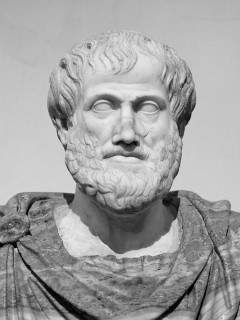

M&ms—mentally mediated meanings
pp. 449-466
in: Anne Reboul (ed), Mind, values, and metaphysics II, Berlin, Springer, 2014Abstract
Aristotle's sketchy remarks on the relations between words, concepts and things at the beginning of the De interpretatione (16a3–9) gave rise to several competing interpretations during the Middle Ages. All of them claimed to be orthodox, not only with respect to the Stagirite himself, but also to Boethius, the first and most significant Latin authority on that matter. The mainstream interpretation (Peter Abelard, Thomas Aquinas, Walter Burley, John Duns Scotus, John Buridan) takes Aristotle to mean that words signify things by means of concepts in the sense that words signify concepts immediately, and things only mediately—an idea which is captured in the leitmotiv voces significant res mediantibus conceptibus. From the middle of the thirteenth century onwards, Aristotle's (and Boethius") words also gave rise to competing, sometimes quite idiosyncratic, interpretations of the exact role played by concepts in the semantics of words. These interpretations share the rejection of conceptual mediation and claim either that words signify things conventionally and concepts naturally (Roger Bacon), or that words do not signify concepts at all and things in a derivative way only, namely insofar as words signify conventionally the very same things which concepts signify naturally (William of Ockham). Obviously, the discussion of the mediantibus conceptibus thesis did not end with the Middle Ages, for one can trace its continuous use and discussion through the Second Scholasticism—mainly in seventeenth century Spain—and subsequently in the vast pedagogical literature aimed at providing students in general (and theologians in particular) with a "classical" (i.e. scholastic) philosophical background. It is not surprising, then, that a late nineteenth and early twentieth century philosopher of language like Anton Marty uses the mediantibus conceptibus principle and claims that it also applies to his own semantics. Thereby, the Swiss philosopher does nothing but add a page—though a remarkable one—to the long history of the reception of Aristotelian semantics. My aim is neither to discuss Marty's or the medievals' interpretative models, nor to show how exactly the mediantibus conceptibus thesis was transmitted from the seventeenth to the nineteenth century. Rather, I intend to gather some first indications in order to answer the following question: Which are the doctrinal similarities and differences between Marty's understanding of the mediantibus conceptibus thesis and the philosophical tradition which obviously—though indirectly—inspired it?






